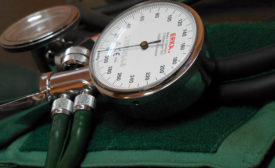Home » Keywords: » heart attack
Items Tagged with 'heart attack'
ARTICLES
Men get better cardiac care than women
-And women are less likely to survive a cardiac arrest
June 28, 2016
Never miss the latest news and trends driving the safety industry
eNewsletter | Website | eMagazine
JOIN TODAYCopyright ©2024. All Rights Reserved BNP Media.
Design, CMS, Hosting & Web Development :: ePublishing





